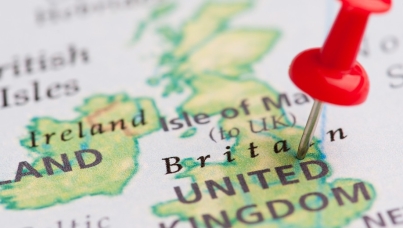Two in three Britons think transgender people face discrimination, but support for gender-affirming measures is mixed
The Ipsos LGBT+ Pride 2023 survey finds that, despite a majority thinking transgender people face discrimination, support for gender-affirming measures is mixed, with support for such measures in Britain among the lowest of all countries surveyed. Among the findings:
- Two in three say transgender people experience discrimination in Britain today
- 77% support protecting transgender people from employment and housing discrimination, but Britons are among the least supportive of gender-affirming measures
- Majority support for allowing same-sex couples to marry (though softer than in 2021) and to adopt children; and
- There is increased visibility of LGBT+ people, particularly amongst Gen Z
The survey was conducted by Ipsos on its Global Advisor online platform in February and March 2023 among more than 22,500 adults under the age of 75, including 1,000 British adults.
Support for protection from employment and housing discrimination is broader than for other gender-affirming measures
Two in three Britons (64%) say that transgender people face at least a fair amount of discrimination, compared with 19% who say they face little or no discrimination. While 77% of Britons agree that transgender people should be protected from discrimination in employment, housing, and access to businesses such as restaurants and stores, other measures receive more mixed support:
- 47% agree that transgender teenagers should be allowed to receive gender-affirming care, such as counselling and hormone replacement treatment, with parental consent,
- 47% agree that government-issued documents such as passports should have options other than “male” and “female” for people who do not identify as either,
- 40% agree that transgender people should be allowed to use single-sex facilities, such as public restrooms, that correspond to their gender,
- 36% agree that health insurance systems should cover the costs of gender transition no differently than the costs of other medical procedures.
Compared to other countries, Britain falls more toward the middle of the pack in perceiving transgender people to face discrimination in society and agreeing that transgender people should be protected from discrimination.
However, Britons’ support for gender-affirming measures consistently falls in the bottom six of the 30 countries surveyed. Among the 30 countries covered, support for various pro-transgender measures is consistently high in Thailand, Italy, Spain, and throughout Latin America; it tends to be lowest in South Korea, throughout Eastern Europe, in Great Britain, and in the United States where transgender rights and protections have become polarizing political issues.
Both in Britain and amongst all countries surveyed, women and younger adults are more likely than men and older adults, respectively, to say the transgender community faces a lot of discrimination. They also show higher levels of support for all types of measures in favour of transgender people, with differences of about 6 to 9 points between women and men and between Gen Zers and Boomers.
Majority support the right for same-sex couples to adopt, legally marry – but marriage support has softened from 2021
Nearly two in three (64%) of Britons say same-sex couples should be allowed to marry legally. Although this is down 4 ppts from 2021, this is still higher than levels of support seen in 2014 and 2013 (when the figure stood at 59% and 55%). One in seven (14%) say they should be allowed to obtain some legal recognition, but not to marry. By contrast, 13% say they should not be allowed to marry or get any kind of legal recognition. Another 9% are not sure.
British women are significantly more likely than men to support same-sex marriage with a difference between both of 20 percentage points (74% vs 54%).
Views on same-sex parenting are warmer than those on same-sex marriage. Nearly three- quarters (72%) of Britons say that same-sex couples should have the same rights to adopt as heterosexual couples do. This figure is unchanged from 2021. Support for the rights of same-sex parents to adopt is higher amongst women (79%) than men (66%), and amongst younger adults (those under 50; 78%) compared to older adults (those 50 and older, 65%) by a similar margin.
Britain is amongst the most positive countries on whether same-sex couples are just as likely as other parents to successfully raise children, with 74% agreeing and 18% disagreeing. Again, women are more supportive of same-sex parenting than are men by 13ppts (81% vs 68%).
LGBT+ visibility is up, with younger age groups most likely to know transgender/non-binary people
The visibility of bisexual, transgender, and non-binary people in Britain has increased since Ipsos conducted the LGBT+ Pride 2021 survey two years ago. However, slightly fewer Britons say they know someone who is gay/lesbian/homosexual:
- 55% of British adults say they have a relative, friend, or work colleague who is a lesbian/gay/ homosexual, down 2 points since 2021;
- 32% say they know someone who is bisexual, up 4 points;
- 17% say they know someone who is transgender, up 4 points; and
- 14% say they know someone who is non-binary, gender non-conforming, or gender fluid, up 2 points.
Women in Britain are more likely than men to say they know someone who is gay/lesbian/homosexual (61% compared to 48%) as well as someone who is bisexual (36% compared to 28%). Younger adults (those under 50) are roughly four times as likely as older adults (those 50 and over) to know someone who is non-binary/gender non-conforming/gender-fluid, with those under 35 twice as likely as those 50 and over to know someone who is transgender.
Sexual orientation and gender identity: 12% of British adults identify as LGBT1 , Gen Z leads on bisexual and pansexual/omnisexual identification
In Britain, 4% of adults identify as lesbian or gay / homosexual, with an equal share (4%) identifying as bisexual. A further 1% identify as pansexual/omnisexual and 1% as asexual. British Gen Zers (now age 26 or younger) are significantly more likely than other generations to identify as bisexual, pansexual/omnisexual, or asexual (14%, compared to 6% of Millennials, 2% of Gen X, and 1% of Boomers). When asked about their gender identity, 2% in Britain identify as transgender, non-binary/gender non-conforming/gender fluid, or in a different way. This is consistent with what was found in 2021.
Notes
1: Due to differences in methodology and question wording, these figures should not be seen as comparable with official statistics on sexual orientation
About the Study
These are the results of a 30-country survey conducted by Ipsos on its Global Advisor online survey platform between February 17 and March 3, 2023. For this survey, Ipsos interviewed a total of 22,514 adults aged 18-74 in Canada, South Africa, Turkey, and the United States, 20-74 in Thailand, 21-74 in Singapore, and 16-74 in all other countries.
The sample consists of approximately 1,000 individuals each in Australia, Brazil, Canada, France, Germany, Great Britain, Italy, Japan, Mexico, New Zealand, Singapore, South Korea, Spain, Thailand and the U.S., and 500+ individuals in each of Argentina, Belgium, Chile, Colombia, Hungary, the Republic of Ireland, the Netherlands, Peru, Poland, Romania, South Africa, Sweden, Switzerland, and Turkey.
Samples in Argentina, Australia, Belgium, Canada, France, Germany, Great Britain, Hungary, Italy, Japan, the Netherlands, New Zealand, Poland, South Korea, Spain, Sweden, Switzerland, and the U.S. can be considered representative of their general adult populations under the age of 75.
Samples in Brazil, Chile, Colombia, Ireland, Mexico, Peru, Portugal, Romania, Singapore, South Africa, Thailand, and Turkey are more urban, more educated, and/or more affluent than the general population. The survey results for these countries should be viewed as reflecting the views of the more “connected” segment of their population.
The data is weighted so that the composition of each country’s sample best reflects the demographic profile of the adult population according to the most recent census data.
The “30-country average” reflects the average result for all the countries where the survey was conducted. It has not been adjusted to the population size of each country and is not intended to suggest a total result.
Where results do not sum to 100 or the ‘difference’ appears to be +/-1 percentage point more/less than the actual result, this may be due to rounding, multiple responses, or the exclusion of “don't know/not sure” or not stated responses.
The precision of Ipsos online polls is calculated using a credibility interval with a poll of 1,000 accurate to +/- 3.5 percentage points and of 500 accurate to +/- 5.0 percentage points. For more information on Ipsos’s use of credibility intervals, please visit the Ipsos website.
The publication of these findings abides by local rules and regulations.



